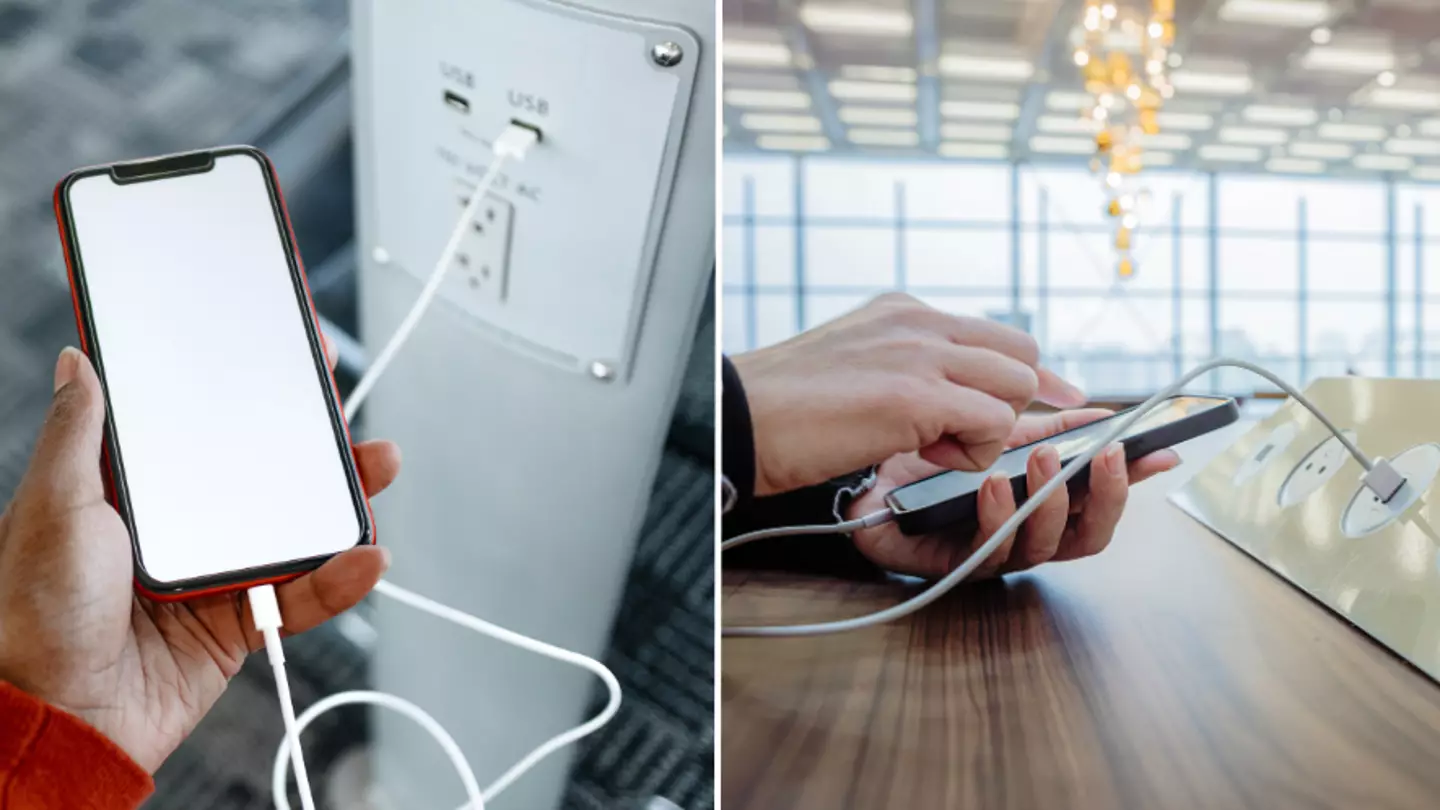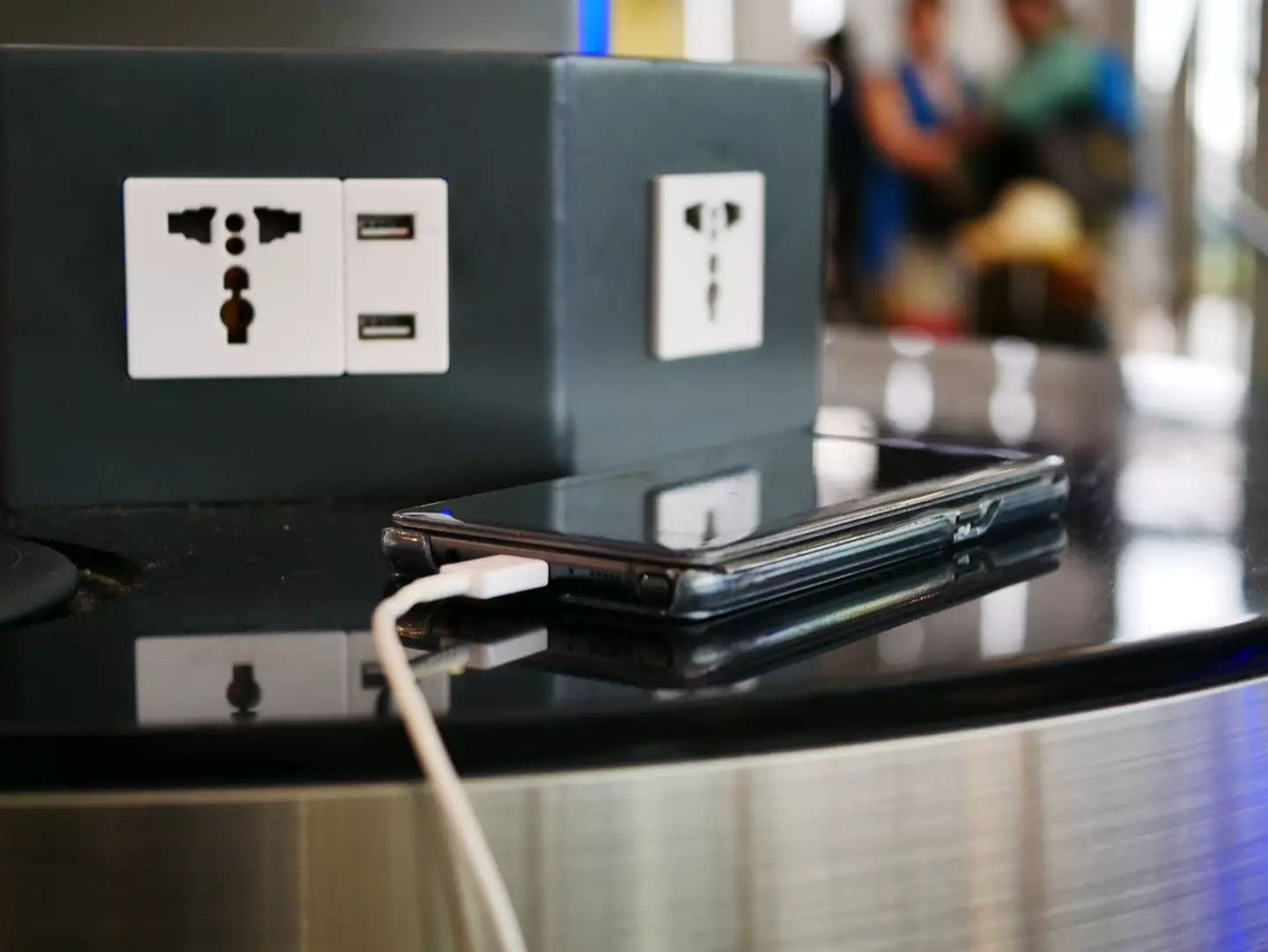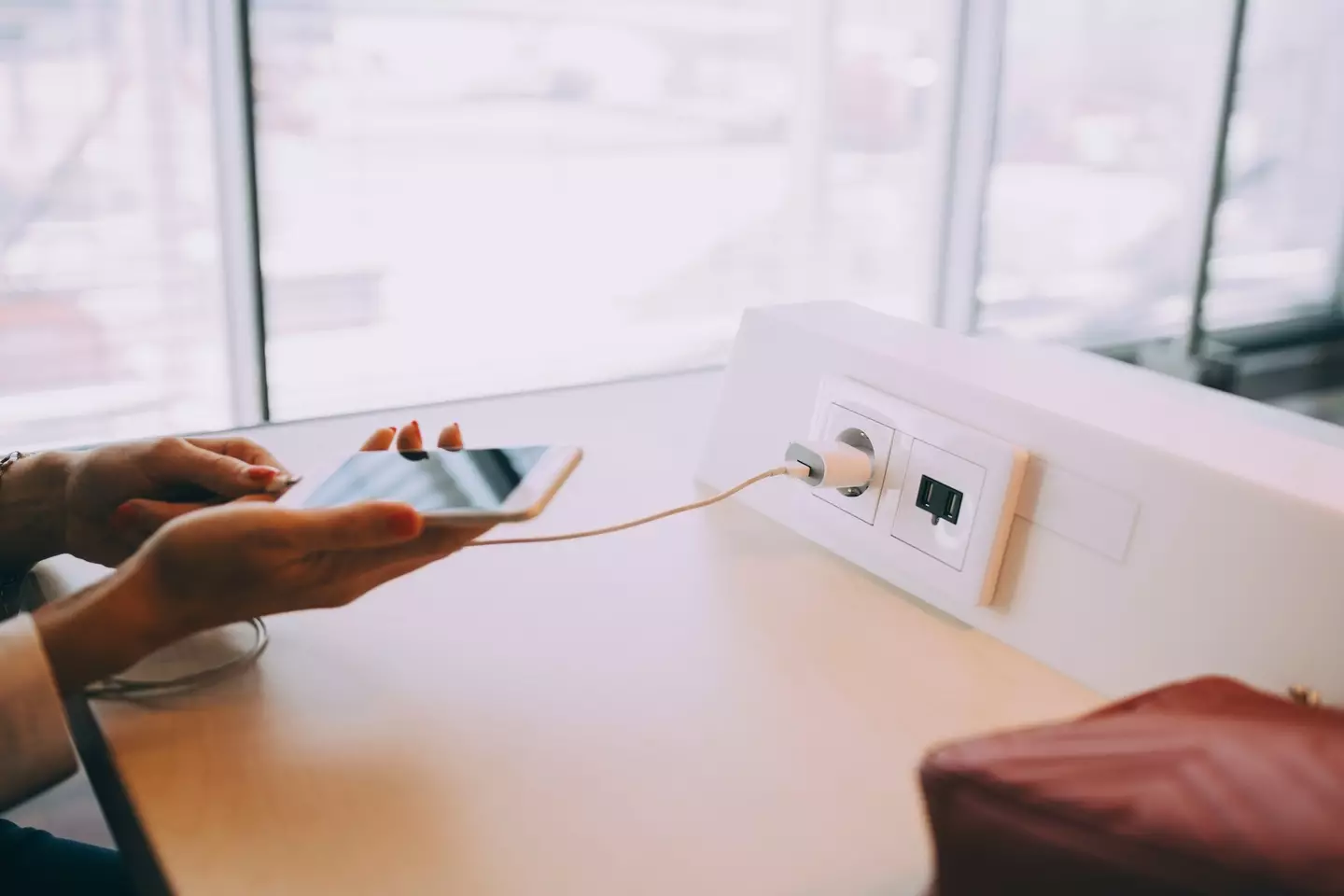
There's absolutely nothing worse than waking up the morning of an early flight to find you've forgotten to charge your phone overnight.
I mean, how else will you put Prosecco-clinking boomerangs from the airport lounge on your Insta story? Or block out your rowdy pals by catching up with Love Island on the plane?
'I'll just charge it at the airport,' you might think. 'They have plugs in the wall in Pret A Manger, right?'
Apparently, however, according to some tech experts, charging your phone in the airport terminal is actually pretty dangerous business for three vital reasons.
Advert

Cyber Security
According to adapter manufacturer Jae Ro - who currently works for technology SIGNAL + FIRM - cybercriminals often target public USB ports to gain access to user's important retails.
Speaking to The Herald, he claimed there has been a colossal surge in the amount of cons tampering with these devices with malicious software in the hope of monitoring the contents of someone's mobile phone, predominantly bank details and sensitive info.
Advert
In fact, he says using a public USB port in any public location is a risk - including the likes of libraries, cafes and on trains.
"Public USB ports offer a tempting solution when you're low on battery and have a long journey ahead," he explained.
"But the convenience comes with a significant security risk."

Juice jacking
While this might sound like a sweet treat, this trend sees an increased amount of naive airport visitors falling victim to 'juice jacking'.
Advert
The malware attack takes advantage of the fact that phones use a USB connection both to charge and transfer data, and uses that to upload malicious files onto your device.
This sees criminals being given access to your most secure and sensitive content.
These public ports - if tampered with - can lead to your phone becoming 'infected' in the long term.
"Your phone becomes vulnerable not just at the airport, but wherever you take it," Jay explained.
Data exposure
While not all public USB ports will have been tampered with, of course, there is still a risk of using them in locations such as airports.
Advert
You might notice sometimes that upon putting your phone on charge when it is attached to an unfamiliar device, your mobile lights up, prompting users to confirm whether or not to 'trust the device'.

"While phones prompt users to choose between 'Charge only' and 'Transfer files' modes, this protection is often bypassed with charging stations," Jae explains.
Because of this, he says that data interception and potentially exploitation is also a risk that more travellers should make themselves aware of.
Advert
This stolen data can subsequently be used by cons for identity theft, or will be further sold on the dark web by hackers.
How to keep yourself safe
Jae advises that you invest in a portable charging station so you don't have to use plug sockets at the airport.
If you absolutely have to charge your phone from a socket in a public place, make sure to disable data transfer on your phone before plugging in.
You can also invest in a 'data blocker' cable to make sure your phone is just charging, and not transferring files.
Topics: Crime, Technology, Travel